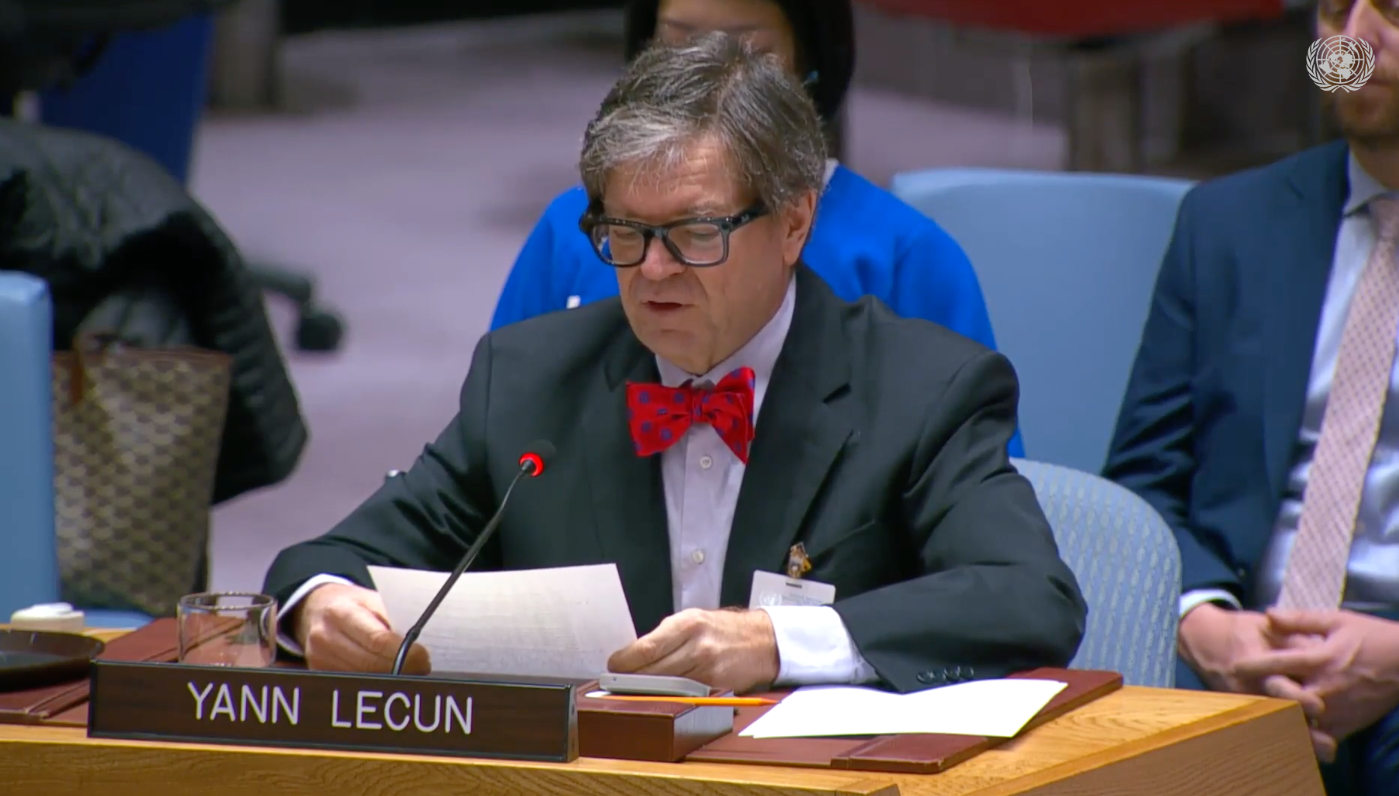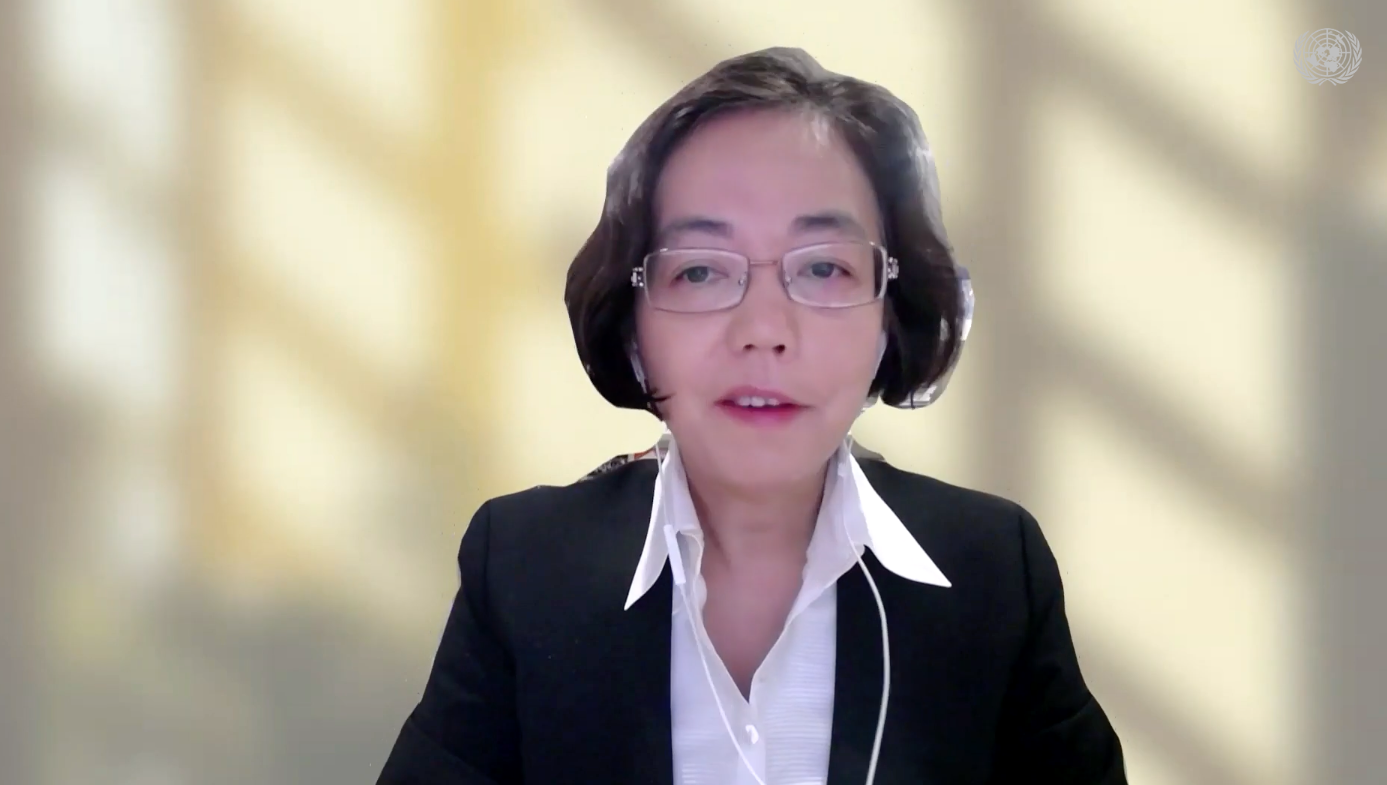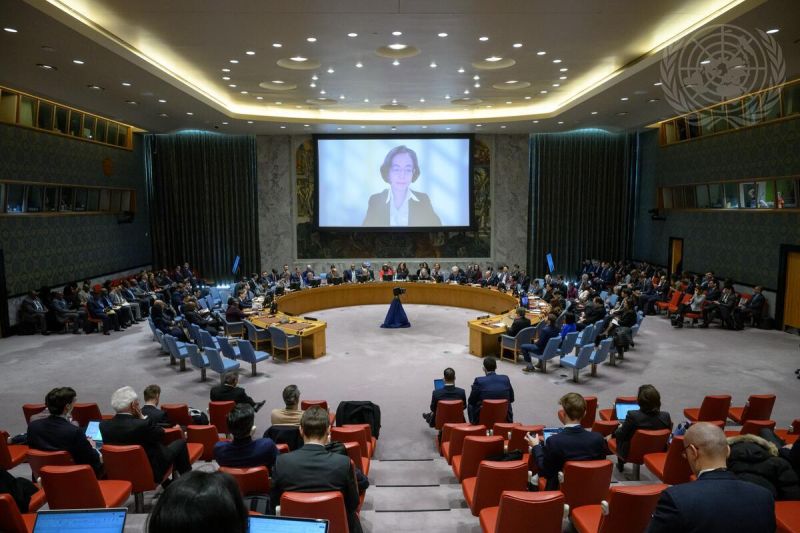On December 19th, 2024, the United Nations Security Council convened under the agenda item “Maintenance of International Peace and Security” for an important discussion on AI and its global impact.
Chaired by U.S. Secretary of State Antony Blinken, the meeting featured briefings from UN Secretary-General, António Guterres; Chief AI Scientist at Meta, Yann LeCun; and Co-Director of Stanford University’s Human Centered AI Institute, Fei-Fei Li.
The UN Secretary-General highlighted the risks of inequality related to AI technologies. He urged action to ensure AI benefits everyone, not just a select few, saying AI must never stand for ‘Advancing Inequality.’
Focus on AI Experts : Fei-Fei Li and Yann LeCun
This meeting caught my curiosity thanks to the participation of 2 main gurus of AI : Fei-Fei Li and Yann LeCun.
I really was interested in listening to what such experts had to say about international peace and security.
Who is Fei-Fei Li ?
Fei-Fei Li, often referred to as the “AI Godmother,” is a renowned computer scientist specializing in artificial intelligence (AI) and computer vision. She co-founded the non-profit AI4ALL, which aims to increase diversity and inclusion in AI. As a professor at Stanford University, she has made significant contributions to AI research, particularly in visual recognition technology. Her startup, World Labs, is revolutionizing AI by giving machines 3D spatial intelligence. Fei-Fei is also a leading advocate for ethical AI, emphasizing the importance of human-centered design and responsible development.
Who is Yann LeCun ?
What Did Yann LeCun Say at the UN Meeting ?

From Yann LeCun Speech, how can we ensure AI models are accessible and beneficial to all communities globally?
What Did Fei-Fei Li Say at the UN Meeting ?

Fei-Fei Li Action Items
- Foster public sector leadership in AI.
- Champion global collaboration through a multilateral AI research institute.
- Address the digital divide and ensure equitable access to AI globally.
- Advance evidence-based governance and a global research agenda for AI.
AI's Transformative Potential and Global Responsibility
- Fei-Fei Li emphasizes the extraordinary intersection of scientific possibilities and global responsibility in AI, highlighting their 25 years of experience in computer vision, deep learning, robotics, and AI for healthcare.
- She discusses the duality of AI, noting its potential to both help and harm, and stresses the importance of public sector leadership and a human-centered AI approach.
- Examples of AI's positive impact include robots navigating disaster zones, precision agriculture systems, and advanced medical imaging tools, which demonstrate AI's potential to drive scientific discovery and improve the world.
- She calls for vigilance to prevent the misuse of AI capabilities, underscoring the need for a balanced approach to AI development and deployment.
Ensuring Broad Access to AI Benefits
- Fei-Fei Li advocates for a vibrant and healthy AI ecosystem to ensure that AI's benefits are widely distributed and aligned with public interests.
- She highlights the concentration of AI innovation in large corporations and select nations and calls for broader access to AI resources.
- Governments are urged to adopt a "moonshot mentality" for AI, committing to visionary public sector investment beyond incremental reforms.
- The United States' national AI research resource pilot program is mentioned as a step towards democratizing access to compute resources and government data sets, but she calls for global scaling of such efforts.
Global Collaboration and AI Governance
- Fei-Fei Li emphasizes the importance of global collaboration in effective AI governance, sharing their experience on the United Nations Secretary General Scientific Advisory Board.
- She calls for a multilateral AI research institute, Miri, to bring together experts across disciplines and pull resources across nations, advancing technical innovation and setting global norms for responsible AI development.
- Global collaboration is essential to address the digital divide and ensure equitable access to AI tools, training, and infrastructure, benefiting both wealthy and marginalized regions.
- She stresses that the benefits of AI should not be reserved for wealthy nations, highlighting the collective responsibility to ensure global stability through equitable AI access.
Evidence-Based Governance and Future Generations
- Fei-Fei Li discusses the complexity of AI and the need for careful, evidence-based governance to pave the way for innovation and global progress.
- Identified risks such as algorithmic bias, disinformation, and misuse of autonomous systems are acknowledged, with a call for collaboration and ingenuity to overcome these hurdles.
- A global research agenda is proposed to fill knowledge gaps and inform targeted interventions, bridging the gap between developers and policy makers.
- She reflects on their role as a researcher, teacher, and mother, urging vigilance, collaboration, and a shared commitment to human dignity and global stability in realizing AI's potential.
Call to Action for Public Sector Leadership and Global Collaboration
- Fei-Fei Li calls for urgent and united action to foster public sector leadership, champion global collaboration, and advance evidence-based policy.
- She emphasizes the need for sustained public investment to ensure AI reflects diverse needs and values, fostering an environment where AI is safe, equitable, and a source of inspiration and progress.
- The speaker concludes by reiterating the importance of acting with urgency and unity to unlock AI's transformative potential while safeguarding its responsible development.
From Mrs Li Speech, what steps can be taken to establish a multilateral AI research institute to promote global collaboration and responsible innovation?
Want to know more about Safe AI and Responsible AI ? Just contact us.



